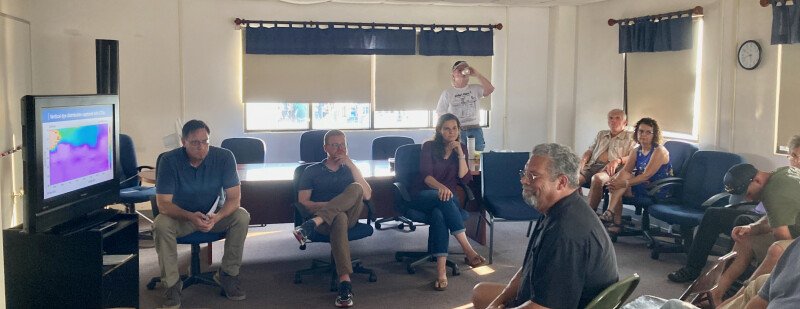Fishermen voice concerns about ocean alkalinity experiments
Rhode Island fishermen converse with WHOI researchers from the LOC-NESS project in Point Judith on August 14. Photo by Sarah Schumann
August 20, 2024 — New England waters may soon be the location for a first-of-its-kind field trial to test a technique called ocean alkalinity enhancement (OAE) that could someday become a pivotal tool in the fight against climate change. But fishermen are concerned that the experiment could further disrupt an ecosystem and fishing industry already contending with the effects of offshore wind energy development and climate change.
“I first heard about it at the June [New England Fishery Management] Council meeting,” said Jerry Leeman, a former Maine fisherman who now heads the New England Fishermen’s Stewardship Association. “Everybody in that room, all forty of us, our jaws dropped. It caught a lot of people off guard. My phone started blowing up with every fisherman you could imagine, from Cutler, Maine, all the way down the mid-Atlantic, asking questions.”
The planned LOC-NESS project (short for “Locking Ocean Carbon in the Northeast Shelf and Slope”) is led by researchers at the Woods Hole Oceanographic Institution (WHOI). Its purpose is to monitor dispersal patterns and environmental impacts of a controlled release of sodium hydroxide (a strong base) into surface waters. As one of seventeen projects supported by a $23.4-million investment by the National Oceanographic Partnership Program, LOC-NESS is part of a new wave of research designed to help identify ocean-based carbon removal or “negative emissions” techniques that are safe, effective, and affordable.

